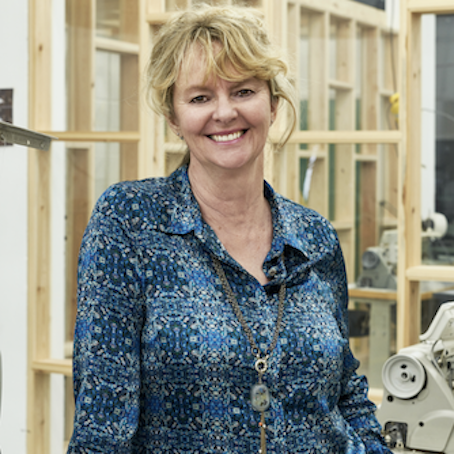Pre – Budget Speech and What It Means for Manufacturing

04-11-2025
By Jenny Holloway, Chair of the Apparel & Textile Manufacturers Federation (ATMF) and Founder of Fashion-Enter Ltd
Today (Tuesday, November 4, 2025), the Chancellor, Rt Hon Rachel Reeves, gave a pre-Budget speech in preparation for her next major financial statement the Autumn Budget 2025 on November 26, 2025.
Today’s address seemed to be an explanation of why she’s going to change her mind on taxes!
Reeves set out the economic context and the principles guiding her upcoming decisions, primarily focusing on managing a significant fiscal shortfall of £62.0 billion in the five months to August 2025.
In the same period, public sector net borrowing stood at £83.8 billion, a larger figure that includes long-term investments.
Public sector net debt is 95.3% of GDP as of the end of September 2025. Has it ever been this high before?
So, what does this mean for manufacturing? We can only speculate until the 26th, but there were many rhetorical comments (again) about what Labour inherited from the Conservatives.
The pre-Budget discussions today, along with reports from industry bodies, indicate that the manufacturing sector is bracing for potential challenges:
Tax Rises:
The Chancellor is widely expected to announce tax rises in the November 26 Budget to fill a reported £30 billion fiscal “black hole.” Consequently, she could target business taxes or scale back reliefs such as capital allowances and R&D credits.
The pledge not to raise income tax, National Insurance, or VAT is widely expected to be scrapped.
Investment Incentives:
ATMF is campaigning hard to encourage investment in UK factories by providing access to the Public Procurement Budget. Tax receipts will automatically increase with work!
It was good to hear, however, that the Government is pulling back on consultancy services. During the COVID crisis, the Government used a leading consultancy which proved ineffective – they didn’t have the detailed, practical knowledge required for such construction-related projects.
National Wealth Fund:
Reeves previously established a National Wealth Fund (into which the UK Infrastructure Bank was merged), with an initial focus on green initiatives and traditional manufacturing. This included allocations of £1.5 billion for gigafactories and £2.5 billion for clean steel. Will there be more support for this Fund?
Business Environment:
All manufacturers are currently facing an uncompetitive business environment due to rising energy costs and business rates, and a high minimum wage relative to offshore countries such as Bangladesh where rates are just 35p per hour. Factories need parity – a level playing field!
Since the last Budget, the UK has had to deal with U.S. tariffs, stubborn inflation, and ongoing supply chain disruptions. The cost of government borrowing has risen globally, and there is also increasing pressure to raise defence spending.
It’s not going to be easy. When one in eight young people is a NEET (Not in Education, Employment, or Training), we need to focus on tackling worklessness. There are many jobs that can be created in manufacturing when there is stability of orders.
Let’s make PPE and uniforms in the UK!























